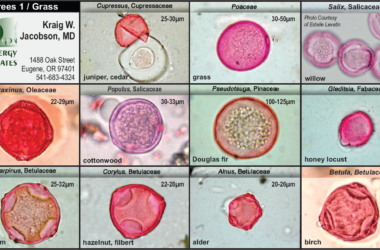By Yaakov Levine
Nutritional Therapy Practitioner
We just returned from a road trip, and have some more fun planned for this summer as well. When we travel, our family hits the road ready to rumble. We bring a cooler stuffed with meals “ready to eat” – of course bearing no resemblance to the meals described that way in the military.
Food serves a dual purpose for us all; when we choose foods wisely, the end result is that we should enjoy what we eat and benefit nutritionally and experience optimum health. As a result of properly preparing and seasoning our food, we will experience the flavors of the foods as they mingle on our palates. There are many choices to make in this culinary adventure toward health and happiness. The following are a few of my favorite healthy food choices to include on your plates this summer, at home or on the road!
Michael Pollan, noted author of “The Omnivores’ Dilemma” and “In Defense of Food” begins the latter work with the suggestion that we “Eat food, not too much, mostly plants.” Due to the increased use of herbicides such as Roundup with GMO and conventionally grown produce, look for organic certification.
As many of you already know, a favorite of mine is collard greens. Collards are members of the family of cruciferous vegetables and are rich in cancer-preventing phyto (plant) chemicals. One cup of collards provides as much calcium as a glass of milk and 5 grams of fiber. Collards and other plants in this family are also great sources of the important antioxidants beta-carotene, lutein and zeaxanthin, especially important for healthier vision.
A favorite way to prepare collards is to sauté them in some vegetable or chicken broth, and then top them with poached eggs and butter. A great way to travel with collards is to blanch them and bring them along to use in place of tortillas, for a great wrap.
Fruit can be an especially healthy choice, especially if you are looking for a dessert alternative. Very popular these days is the Paleolithic (Paleo) diet, which includes foods we ate before we had agriculture. We foraged for wild fruits, which for the most part were tart wild berries.
Berries can be frozen for enjoyment during the winter months, and as a cool treat in summer. Frozen blueberries may even be healthier than fresh since the freezing process breaks up the cell walls to make more of the antioxidants available. According to his studies, neuroscientist Dr. James Joseph has determined that blueberries are the ultimate memory food. Studies have been performed using bilberries, a close cousin to blueberries, finding them helpful to support vision, preventing eye strain and improving night vision. Toss some blueberries in a salad, a smoothie, or in a cup of full-fat yogurt for a healthy treat.
Fiber-rich apples are another great fruit to include since, as we know, “An apple a day will keep the doctor (bills) away.”
While avoiding corn and potato chips is a good idea, we all enjoy a crispy treat now and then. Try some raw nuts and “crunchy” raw nut butters. In the Nurses’ Health Study, they found that those who included nuts in moderation in their diet had a lower Body Mass Index, a measuring method to determine whether we are overweight. Raw almonds are a great source of monounsaturated fats and are part of the health-promoting Mediterranean diet. Research shows that including these nuts in your diet will result in lower cholesterol and a healthier and stronger cardiovascular system.
A few almonds or a bit of almond butter and a small apple is a great snack or pre-workout food. I soak my almonds in sea-salt water, then dehydrate them at 110 degrees in a food dryer or oven, which results in a great-tasting “crispy” snack alternative to chips.
The next foods to include this summer are cultured foods, including cultured dairy and vegetables. By including cultured dairy (or non-dairy) milk (yogurt/kefir) we can support the healthy balance of flora in our digestive tracts, resulting in a stronger immune system and improved energy.
Another way we can support healthy digestion is to include a tablespoon of cultured vegetables with meals. Sauerkraut and kimchi are two easy-to-make cultured vegetables, kimchi being the spicier choice, to support digestion.
As you get ready for your summer meals or your on-the-go adventures, try some of these suggestions, plan, pack and prepare. I’ll bet you will enjoy a healthier summer with fewer trips through those drive-thrus. Salud!






